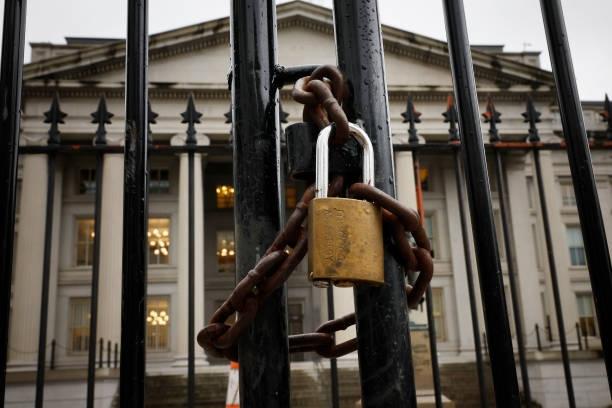Debanking: A Shadowy Threat to the Digital Economy
The digital economy, fueled by creators and entrepreneurs, faces a growing threat: debanking. This practice involves denying individuals or businesses access to essential financial services, effectively exiling them from the modern economic system. In 2024, this issue gained significant attention, with tech leaders like Marc Andreessen highlighting its increasing use against crypto founders, independent creators, and even those with certain political viewpoints. The implications are far-reaching, potentially stifling a sector projected to contribute half a trillion dollars to the economy by 2027. Supporting the financial freedom of these digital innovators is not merely a desirable option; it is crucial for economic growth and combating both debt and inflation.
From Operation Choke Point to the Creator Economy: A Troubling Evolution
Debanking’s origins can be traced back to Operation Choke Point, a government initiative under the Obama administration. This program aimed to pressure banks into denying services to industries considered "high-risk," such as legal marijuana businesses and firearm dealers. While seemingly reasonable on the surface, concerns arose about the potential for bias and overreach. Today, a new iteration, often referred to as "Operation Choke Point 2.0," is allegedly targeting crypto founders, tech startups, and individuals with unpopular political beliefs. This expansion of debanking from specific industries to individuals raises serious questions about fairness, due process, and the potential for chilling effects on innovation and free expression.
The Canary in the Coal Mine: A Broader Threat to Economic Growth
Beyond the immediate impact on targeted individuals and businesses, the growing trend of debanking poses a systemic risk to the burgeoning creator economy. This sector, comprising individuals building businesses around online content and communities, is a significant driver of economic growth. If debanking practices extend to this vital segment, the consequences could be devastating, potentially crippling the economic prospects of younger generations who are increasingly reliant on digital platforms for income and entrepreneurship. The rise of platforms like OnlyFans, Kajabi, and countless others demonstrates the immense potential of the creator economy, and stifling its growth through debanking would be a self-inflicted economic wound.
The Mechanics of Deplatforming: How Financial Institutions Control Access
The process of debanking often involves pressure from larger financial institutions on payment processors and other intermediaries. Companies like Stripe, which process billions of dollars in creator earnings, are caught in the middle. While they recognize the importance of the creator economy, they are ultimately beholden to the underlying banks that provide their financial infrastructure. These banks, influenced by regulatory pressures and reputational concerns, can dictate which businesses and individuals are deemed acceptable for financial services. This creates a precarious situation for creators who rely on these platforms for their livelihoods and can be deplatformed without recourse.
Legislative Solutions and the Need for Fair Access
Several members of Congress have recognized the dangers of debanking and proposed legislative solutions. The Fair Access to Banking Act aims to ensure that financial institutions provide services to any legally compliant business or individual, regardless of industry or political affiliation. This legislation seeks to address the potential for discriminatory practices and protect the fundamental right to participate in the financial system. Ensuring fair access to banking is not just a matter of individual rights; it is essential for fostering a healthy and competitive economy.
Embracing the Digital Future: Supporting Creators, Not Stifling Innovation
The year 2024 marked a turning point in the digitalization of our economy and political landscape. As we move forward, it is imperative that our financial systems adapt to support the evolving needs of creators and entrepreneurs. Debanking represents a dangerous step backward, threatening to stifle innovation and undermine the very foundations of the digital economy. Instead of exclusion and control, we need policies and practices that empower creators, promote financial inclusion, and unlock the full potential of the digital age. A thriving creator economy, contributing trillions to the global economy, is within reach – but only if we choose to embrace it.


